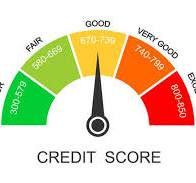
How Is Your Credit Score Calculated and What Factors Influence It?
Your credit score is a critical factor when it comes to securing a mortgage. Credit scores range between 300 and 850, with scores above 620 generally considered desirable for mortgage approval. But how exactly is your credit score determined? Let’s break it down.
Factor #1: Your Payment History
Your payment history is the most significant factor influencing your credit score. Credit agencies assess whether you’ve paid your credit card obligations on time and how late any missed payments were. Negative records such as bankruptcy filings, liens, and collection activities also weigh heavily against you.
Factor #2: How Much You Owe
The amount of money you owe across your accounts plays a crucial role. High levels of debt can signal to lenders that you may be overextended. However, maintaining a healthy balance-to-credit-limit ratio can positively impact your score. Ideally, try to keep your credit utilization below 30% of your total credit limit.
Factor #3: The Length of Your Credit History
The length of your credit history matters. Generally, the longer your accounts have been open, the better. According to Fair Isaac Corp. (FICO), the average consumer’s oldest account is 14 years old. Only one in 20 consumers has a credit history shorter than two years, which may suggest inexperience with managing credit.
Factor #4: How Much New Credit You Have
Lenders view new credit accounts as riskier, even if payments are made on time. Opening several new accounts in a short period can negatively impact your score. Space out credit applications to minimize this effect.
Factor #5: The Types of Credit You Use
Diversity in your credit portfolio is another positive signal. A mix of installment loans, credit cards, and mortgages demonstrates your ability to manage different types of credit responsibly.
For a deeper dive into evaluating and understanding your credit score, visit www.myfico.com.
If you’re ready, let’s Get Prequalified!
